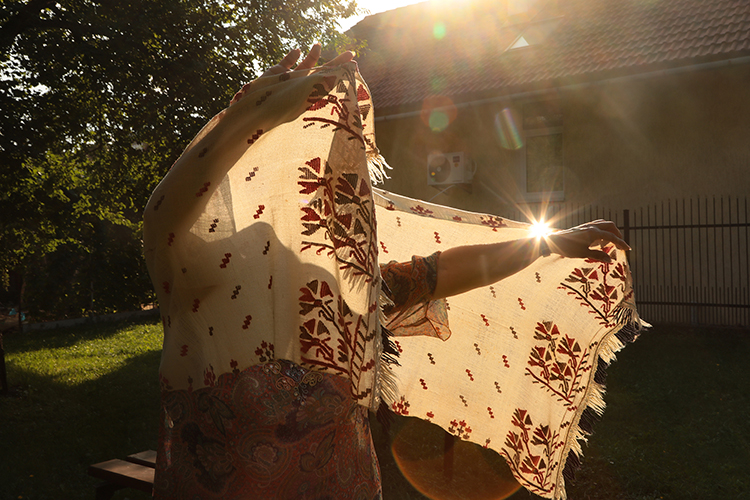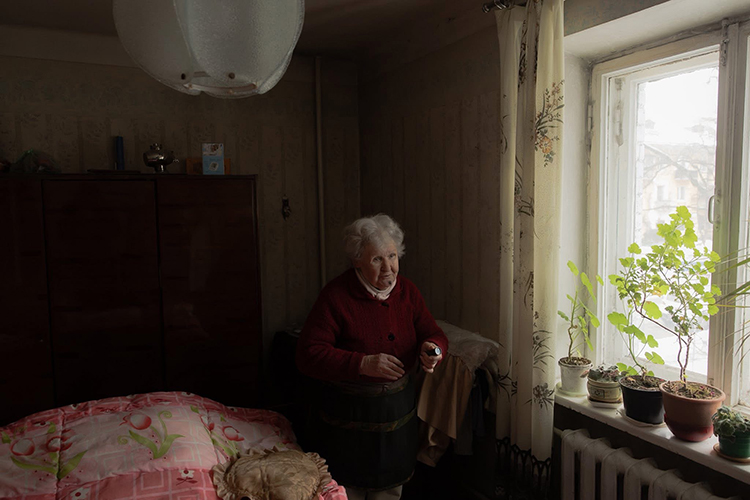In such photos, any search for metaphors seems to be an exaggeration for its own sake. Reality is scarier than fiction and interpretation.
Yes, this is one of those photos in which I do not have the courage to even assume anything. To speak from one's place (quite a good chair of a book festival, from which I ask intelligent and educated people how we live with each other, when the limits of our experience are so incommensurate even in one family) seems sacrilege. Even when your profession, job, and skill is to witness, write, and search for words, they are still very different experiences. Looking at pictures like this makes you feel wrong. Would it feel right — that is, embarrassing. From the chair of the book festival, I do not think about what goes on under Vuhledar, because I think of a prepared plan to talk to people who have something to explain to me or at least suggest how to live it now.
So let no metaphors now be just the story of the author of the photograph.

This picture was taken by photographer Valentin Kuzan, who is now in the army, during two nights at the stabilization point in Kurakhovo, where the wounded were brought from Vuhledar and the surrounding area. The city on the mountain, from the highest buildings of which the lowland fields can be seen so beautifully in the morning, is already becoming famous. All those who did not know the map of Ukraine well (almost all of them) now study it neatly with each destroyed town. You see a map in the distance and covered with smoke, but as soon as a town or village lights up, it's as if you wipe the veil over that place with a coin, like those old cards for replenishing your mobile. And here you see the town, only it is already difficult to see what it really is. On the first night at the station, Valentin Kuzan caught a frenzied stream of wounded, and these are the moments in which everyone who has not yet heard of Vuhledar will hear about him.
Valentine barely had time to film how they were helping the military, not to talk to someone. In that stabilization point in the corridors, doctors set a table where the wounded could finally drink tea, eat cookies or even a sandwich while they wait to be evacuated to the hospital. Some waited for this day, because they are taken out mainly when the blackness subsides.
Both the medics and the wounded, who can go, go out to smoke at night under the building. Out of the picture remains the fear and understanding that at any moment the Russians can drop something here. The photographer remembers, without taking pictures, the glare of the night, the blue dimmed light of the medavaks, and the quiet flowing lights of hot cigarettes that freeze between the fingers of those waiting for the new wounded and those waiting to be picked up from here.
In this picture, a wounded soldier. He did not want to be photographed, but in the end he agreed with the photographer that in such bandages he would not be recognized, and he needed to show what was happening. It is the second night at the station, a little quieter than the previous one, but all the beds are occupied by those waiting for the car to the hospital. The man is sitting on one of the beds, behind him is such a light blue wall, and behind it the same deep invisible night and completely controllable air bombs. He has a cross on his neck on one chain and, let's see, a silver ring. We don't know what it means to him, but it does mean something when he carries so closely with him.
This man did not tell the photographer anything. All the time he was talking on the phone or dialing someone. Did he call different people or was the connection constantly interrupted? Valentin Kuzan only caught and remembered how he, leaning his phone to his ear, said something like “hello, brother” or “hello, brother.”
With such a photo it is difficult to convey the fact that someone is constantly in touch with a man - you can have two. From that evening, Valentin Kuzan has another picture, he took it when the medical evacuation car arrived, and the wounded were taken inside, from where the mentioned bluish light broke out.
Inside the medavak on both sides, shelves in two rows, as if a coupe in a train. Someone is sitting, someone is lying down, the legs of the wounded are visible, hanging from the upper shelves. It was there, directly in the center, that the photographer saw a man with a phone for the second time, he was still talking. Even his posture has hardly changed. So Valentine took another picture.
But it is good that we now have a mobile connection, and not two weeks of letter-to-letter emptiness in which there is no certainty. Kolezhanka breaks out of her thoughts, because she speaks of the same incomparable experience. The sister writes to her and asks how are you there, to which the girlfriend says: nothing, I'm preparing for the wedding, and you?
Nothing, we move, we are transferred to Ugledar.
Text: Vera Kuriko
Photo: Valentin Kuzan





















